Clarke County School District (CCSD) is going back to the basics with its new curriculum that supports science of reading and is teaching kindergarten through third-grade students how to read with phonics and syllables.
The program, which was implemented in August 2023, aims to build on foundational skills that previous curriculum failed to support, according to CCSD curriculum coordinator Christine Havens-Hafer. The program intersects reading and writing through phonemic awareness, vocabulary, oral language and more, according to HB 538. While teachers formerly isolated skills to one standard per lesson and focused on guided reading, the new curriculum addresses multiple concepts at the same time, taking holistic approaches to the language.
Havens-Hafer said the program is “all about explicit, systematic, deliberate and sequenced instruction,” which third-grade Cleveland Road Elementary School teacher and 2023-2024 CCSD teacher of the year, Jakelyn Spencer, is very excited about.
“If they can’t fluently pull print from the page and understand what they’re seeing, they can’t understand complex text,” Havens-Hafer said. “It’s going to follow them all the way to high school. And, on top of it, that’s why you get the poor performance but also those word level deficiencies … you’re just going to keep pushing them back down, down, down.”
Why It’s Newsworthy: Clarke County School District literacy education is heading in a new direction by going back to the basics with phonics programs. According to data from the 2022-2023 Georgia Milestones, more than a third of Georgia third graders, 34.1%, are reading below grade level. About 45.5% of CCSD third graders are reading below their grade level.The Numbers
According to data from 2020-2021 in the U.S. News & World Report, 22% of elementary students in Clarke County public schools tested at or above the proficient level for reading.
Data from the Georgia Department of Education milestones show that on average, nearly 50% of third-grade students across all CCSD elementary schools were reading below their grade level in 2023. The percentages of third-grade students who were reading below their grade level (Lexile < 520L) also spiked in every elementary school after the COVID-19 pandemic.
Despite this, Havens-Hafer said the reading levels vary by grade level. While kindergarteners do not have much to compare to, later elementary school grade levels show how these gaps in their early literacy curriculum follow them throughout their education.
“The gaps are so big nationally, in Georgia and here, but we’re not too far off, which is the good news as far as where we’re at,” Havens-Hafer said. “Obviously, we want to improve every area. And I think this is why Georgia has become so intent on making sure that this new bill is enacted in every district.”
Changes Ahead
Spencer said her student’s confidence with reading has significantly grown, especially among those in special education or multi-tiered support systems, compared to previous years because the new curriculum addresses phonological gaps head on. The curriculum also makes an effort to keep struggling students in the classroom, rather than pulling them out for extra assistance, according to Havens-Hafer. Keeping all students in the classroom allows them to read the same material, rather than labeling them as a particular reading level, according to Spencer.
“Now, they all have copies of these larger print books — they’re not labeled or put into a box of what their reading level is,” Spencer said. “With this new curriculum, it’s all based on their phonological skills and where they have phonological gaps instead — addressing those head on and not necessarily limiting them to a specific grade level of reading.”
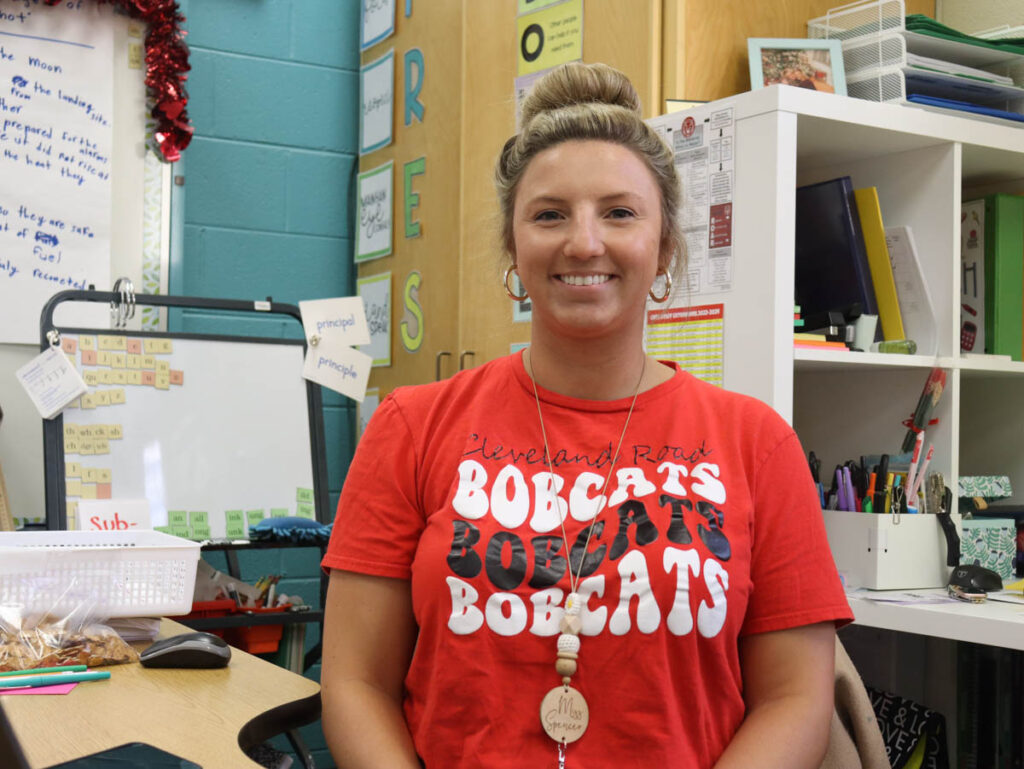
Mumbi Anderson, the CCSD Board of Education president, has a son in kindergarten who is currently learning how to read from this new curriculum. She says he was sounding things out every day, even though he’d been in school for about four months.
Still, this new curriculum uses the scripted style of teaching, which received some pushback. Scripted curriculum requires every teacher to follow a universal script, instead of allowing them to plan lessons. Emily Casey, a senior elementary education major at the University of Georgia who was placed in Oglethorpe Avenue Elementary School for the fall 2023 semester, said it’s hard to have a scripted curriculum that “fits for every student in the classroom.”
“I think teachers need a little bit more of a say on what fits the dynamic of their classroom,” Casey said. “But also, students don’t have any say, and I think that’s struggling with literacy because they’re not interested in reading the book that the script has for them.”
While Casey said she is fine with scripted curriculum, she also hopes schools give time to move away from it, too. She suggested offering half of class time for students to pick what they want to read, which might help improve their motivation toward reading as well.
Additionally, Casey emphasized the importance of physical books. In Spencer’s classroom, she flips through pages and reads along with her students. Even though she understands the importance of physically touching the text, she also knows the students need to be trained online because that’s how their end-of-year tests are given.
The excitement surrounding reading has persisted in Spencer’s classroom. She said the new literacy curriculum allowed her students to explore topics more in-depth. Her students traveled to the Georgia Aquarium in the fall 2023 semester when they were going through their “under the sea” module.
Now, they’re learning about immigration.
As long as the literacy curriculum aligns with the Georgia Early Literacy Act and is approved by the state, each district can have their own say, according to Havens-Hafer. What worked in CCSD may not in other districts. She says that she was not part of the conversation when CCSD chose this curriculum — but she understands why they did.
“As far as moving forward, after everyone gets comfortable with it, we’ll see how that goes,” Havens-Hafer said. “If you start cutting corners, it may happen again … you’ll see in the data. That’s what I always say, follow the numbers.”
Libby Hobbs is a junior majoring in journalism.


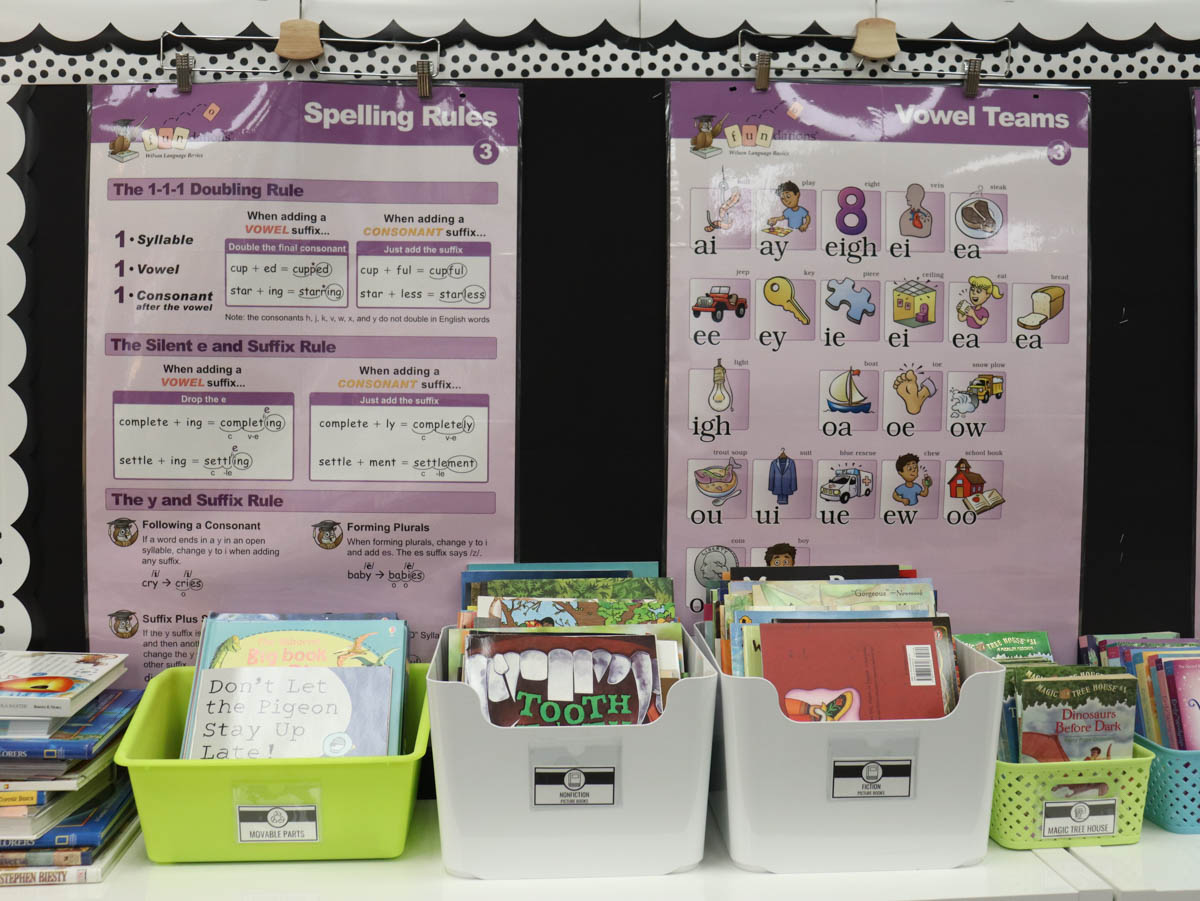
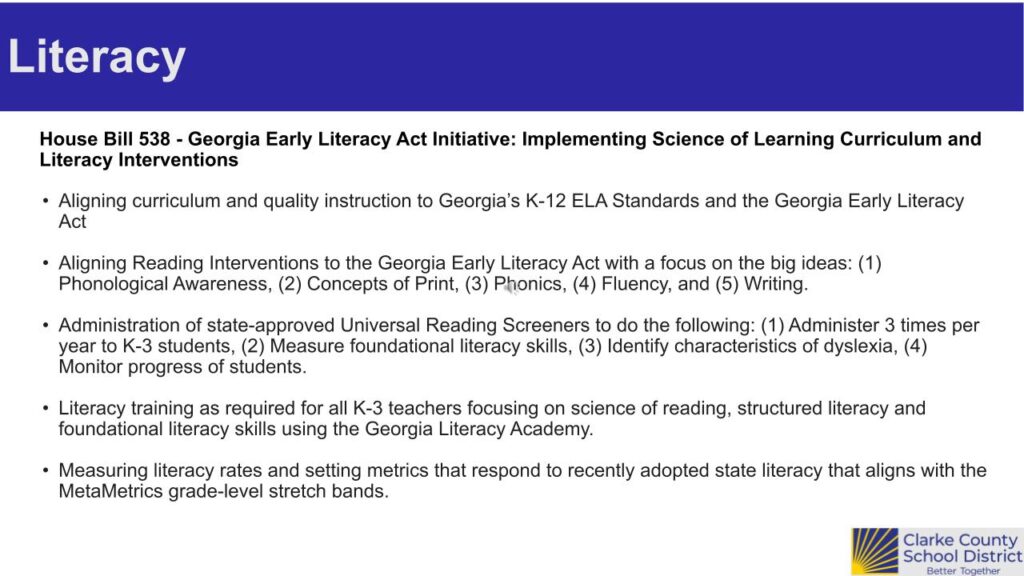
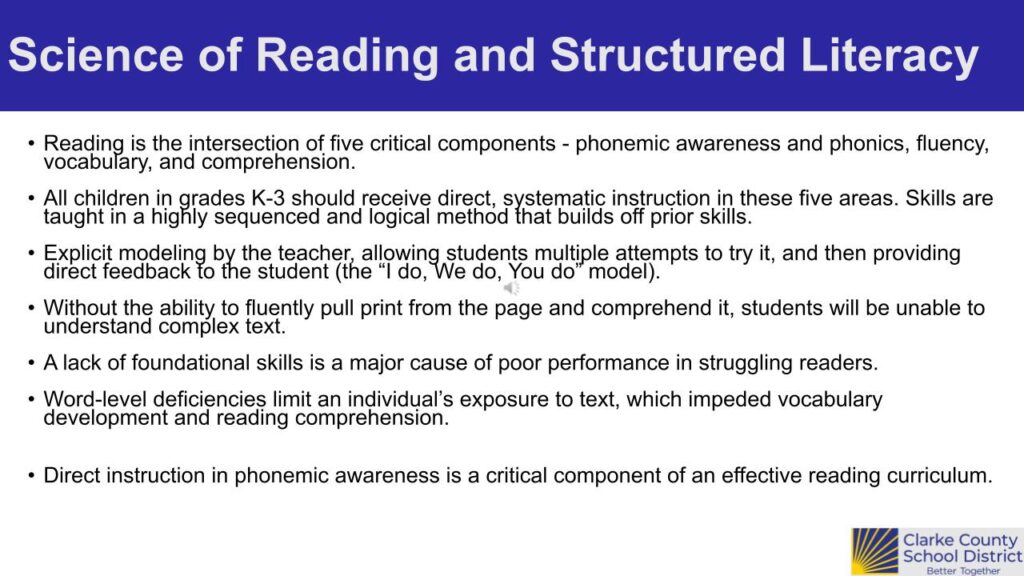




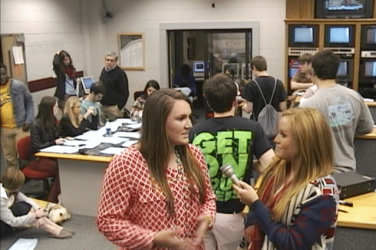

Show Comments (0)